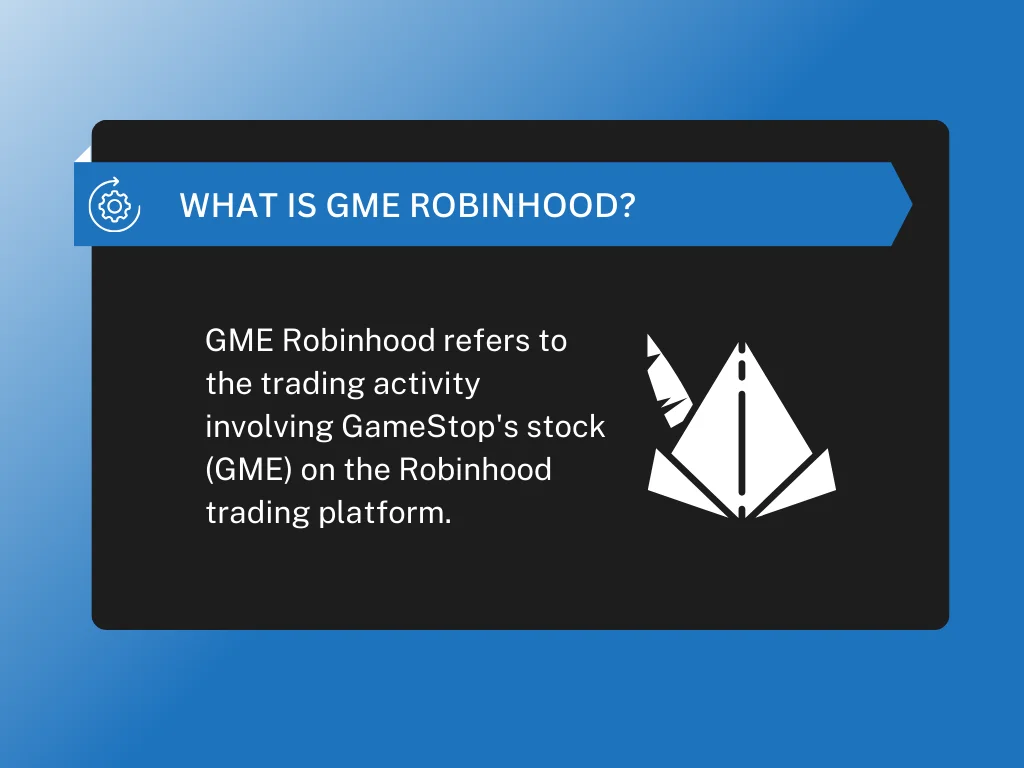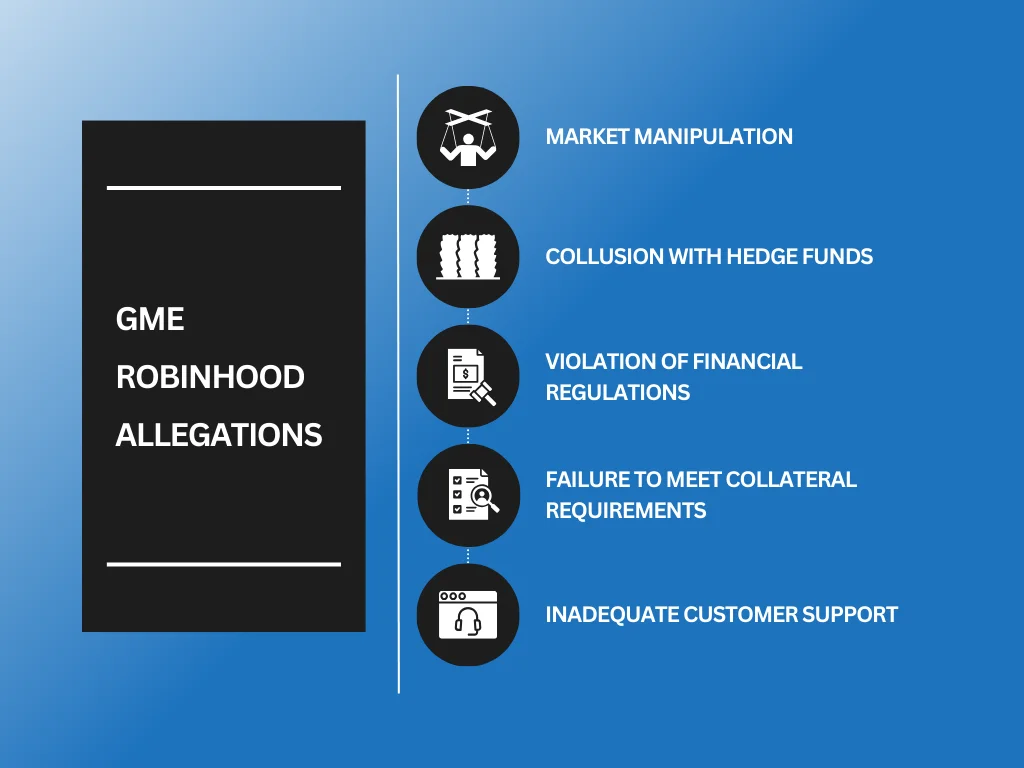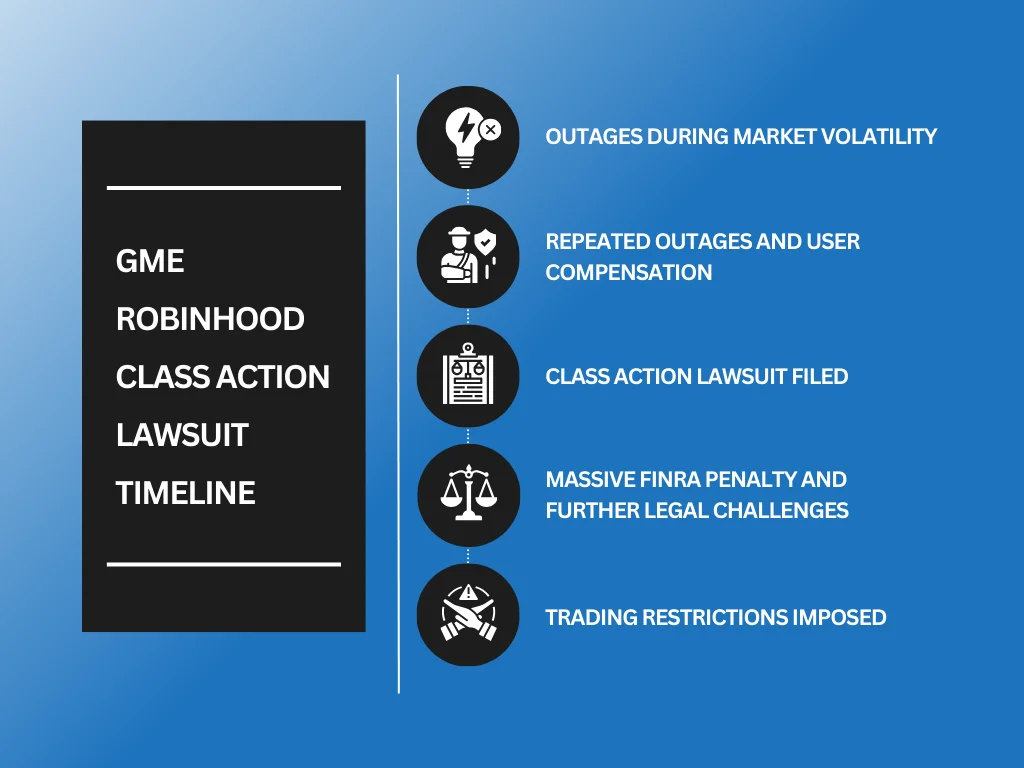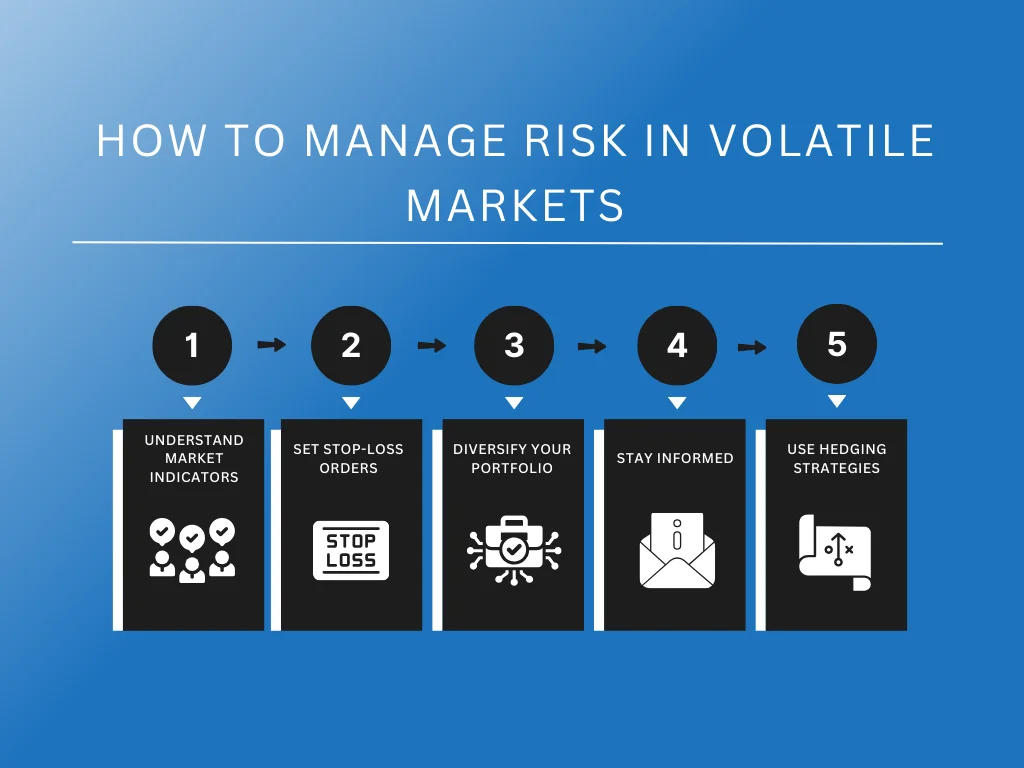
GME Robinhood Scandal: What Do You Need to Know?
In early January 2021, the GME Robinhood scandal captivated retail investors and Wall Street alike, as GameStop shares soared by an unprecedented 2,321% from $19.95 on January 12 to a peak of $483 on January 28. This event highlighted the volatility of meme stocks like GameStop and underscored the power dynamics between retail investors and financial institutions. They aimed to counteract the heavy short positions held by major financial firms like Melvin Capital and Citadel Securities.
At Spartan Trading, we closely monitor such market movements to provide our community with actionable financial insights. Our focus extends to various market aspects, including risk management, order flow, and the implications of market volatility. We aim to empower our members by delivering comprehensive market analyses and guidance on navigating complex trading environments.
From our careful observation of the GME Robinhood saga, we’ve put together this guide that explores the intricacies of the event, including the class action lawsuit against Robinhood, the timeline of legal action, and the broader implications on financial services. By the end, you’ll have a detailed understanding of such market phenomena and formulate better strategies to protect your investments against similar market volatility.
Here’s a detailed view of the GME Robinhood scandal:
What Is GME Robinhood?
GME Robinhood refers to the trading activity involving GameStop’s stock (GME) on the Robinhood trading platform. This platform allowed many investors, particularly individual and retail traders, to buy and sell GME stock, often with no commission fees. It famously became a battleground during significant trading events.
The scandal emerged when Robinhood restricted trading of GameStop stock during extreme volatility, driven by a short squeeze initiated by users of social media platforms. This action impacted stock market dynamics and led to accusations of conflicts of interest and market manipulation. Critics argued that Robinhood favored certain market-maker entities and financial services over its Robinhood customers.
Case Details: GME Robinhood Lawsuit
In late January 2021, Robinhood’s investing app faced intense scrutiny and legal challenges after restricting trades on GameStop (GME) and other stocks, citing volatile stock and regulatory requirements. This decision came during unprecedented trading volume, driven mainly by individual investors on platforms like Reddit, pushing the stock price of companies like GameStop to soar quickly.
Allegations
The allegations against Robinhood are multifaceted and deeply interwoven with the events that unfolded during the GameStop stock surge, primarily driven by a group of individual investors coordinating through the subreddit r/WallStreetBets. Key allegations include:
- Market Manipulation: Robinhood was accused of manipulating the market by restricting buying GameStop shares and other “meme stocks” like AMC, which critics argued disproportionately affected individual investors while benefiting institutional investors and hedge funds.
- Collusion with Hedge Funds: Some investors and observers speculated that Robinhood’s actions during the trading surge were influenced by its financial relationships with large hedge funds, particularly regarding the platform’s payment for order flow practices.
- Violation of Financial Regulations: Limiting transactions during a critical trading period, Robinhood is alleged to have violated several financial regulations to protect investor rights and ensure market stability.
- Failure to Meet Collateral Requirements: Robinhood’s CEO Vlad Tenev cited the clearing house’s sudden and extreme demands for collateral as the reason for restricting trades. On January 28, Robinhood informed users that it was placing restrictions on transactions for specific securities due to “market volatility.”
- Inadequate Customer Support: The lawsuit also touches on Robinhood’s allegedly inadequate systems for customer support, which became particularly evident when users faced locked accounts and could not execute trades or protect their investments during critical moments.
These allegations have led to multiple class-action lawsuits and have drawn scrutiny from regulatory bodies like the Securities and Exchange Commission and the Financial Services Committee, sparking broader discussions about market fairness, the role of technology in trading, and the rights of individual investors versus institutional players.
The outcome of this lawsuit and the ongoing investigations may prompt significant changes in how brokerage platforms operate and balance operational exigencies with user rights and market integrity.
Company’s Stance on the Case
Robinhood has consistently defended its actions regarding the GME Robinhood lawsuit, stating that its decisions complied with financial regulations and were necessary to maintain market stability. The platform argues that its trading restrictions were directly related to equities trading volume surges and collateral requirements set by the National Securities Clearing Corporation.
In January last year, Robinhood’s CEO Vlad Tenev emphasized in a blog post and various interviews that the firm had to make difficult decisions during unprecedented market price fluctuations. Tenev explained that these measures were to protect the company and its customers from large losses due to the volatile stock movements of GameStop shares and other meme stocks like AMC.
Moreover, Robinhood highlighted that while the restrictions were unfortunate, they were necessary to comply with regulatory requirements in the United States, ensuring the integrity of its operations and the financial advice provided to its users. The company reiterated its commitment to providing stock trading access to individual investors, aiming to democratize access to the financial markets.
Robinhood GameStop Lawsuit Settlement Details
Robinhood recently reached a significant settlement in the lawsuit concerning its restrictions on trading shares of GameStop and other stocks. This lawsuit, initiated by retail traders, accuses Robinhood of market manipulation by arbitrarily limiting purchases during the height of the meme stock frenzy in early 2021. The settlement announcement is expected to be finalized within the next two weeks.
- Settlement Date: Robinhood’s lawyers indicated in a May 28, 2024, court filing in Miami that the settlement discussions have nearly concluded.
- Parties Involved: The lead plaintiff, Blue Laine-Beveridge, represents a group of investors who suffered financial losses due to Robinhood’s trading restrictions.
- Allegations Addressed: The lawsuit claims that from January 28 to February 4, 2021, Robinhood manipulated the market by restricting transactions in specific stocks like GameStop, often discussed by influencers like Keith Gill, known as Roaring Kitty.
- Financial Impact: Robinhood’s action is said to have wiped out significant equity for investors trading in GameStop, AMC shares, and other meme stocks.
- Legal Proceedings: This settlement follows multiple legal challenges across the U.S., with this case being overseen by Judge Cecilia Altonaga, who recently denied a motion for class certification in April 2024.
- Market Response: Following the settlement news, Robinhood’s stock increased by 3%, a significant shift given the previous year’s performance.
The settlement effectively addresses allegations against Robinhood, including the manipulation of market maker functions and the direct impact on trading underlying stocks like GameStop. This resolution is pivotal as it precedes how brokerage platforms manage trade data and interact with regulatory bodies regarding short interest and investor rights in New York and other financial hubs.
GME Robinhood Class Action Lawsuit Timeline
The GME Robinhood class action lawsuit marks a significant chapter in financial technology and stock trading history. This lawsuit stems from allegations that Robinhood mishandled its platform during critical periods of trading volatility, particularly affecting GameStop (GME) stock.
This timeline details key events that illustrate the escalation and ramifications of Robinhood’s legal and operational challenges.
Outages During Market Volatility
Robinhood experienced a significant platform outage on March 2, 2020, a day of substantial market swings. This downtime prevented users from accessing their accounts or executing trades during crucial trading hours. The outage sparked widespread frustration among traders, who missed out on potential gains as the market surged.
Repeated Outages and User Compensation
Following the outage on March 2, Robinhood’s platform faltered again, leading to further trading disruptions. In response, Robinhood offered users of its premium service, Robinhood Gold, three months free—a compensation valued at approximately $15. This gesture did little to quell the discontent among its user base, particularly as the market’s value increased significantly on that day.
Class Action Lawsuit Filed
Travis Taaffe filed a class action lawsuit against Robinhood in the US District Court for the Middle District of Florida. The lawsuit sought damages for the inability to access funds and execute trades, highlighting the significant financial opportunities users missed due to the platform’s instability.
Massive FINRA Penalty and Further Legal Challenges
On June 30, 2021, FINRA hit Robinhood with a record $70 million penalty for mishandling trading practices and misleading customers about investment risks. This fine underscored Robinhood’s ongoing regulatory and legal scrutiny, exacerbated by its platform’s repeated outages and the alleged misinformation provided to its users.
Trading Restrictions Imposed
In response to volatile trading driven by a social media-fueled buying frenzy of stocks like GameStop and AMC, Robinhood controversially restricted purchases of these stocks. This decision led to accusations of market manipulation, preferential treatment of institutional investors, and several lawsuits claiming damages for retail investors who could not buy or sell during critical periods.
Ongoing Legal Actions and Settlements
As of mid-2021, Robinhood faced over 50 class action lawsuits and several more individual claims related to its practices during the GameStop trading frenzy. These lawsuits focus on various allegations, including limiting transactions on GameStop stock during peak volatility, which plaintiffs argue was intended to manipulate the market.
How to Manage Risk in Volatile Markets
The volatility experienced during the GME Robinhood saga highlighted the unpredictability of financial markets and the risks inherent to trading, especially on platforms like Robinhood. This event, marked by extreme fluctuations in GameStop’s stock price, driven by social media and retail investors, is a perfect example of market unpredictability.
Understanding how to manage risk in such volatile environments is crucial for investors aiming to protect their investments while navigating similar scenarios. Here are the steps on how you can manage risk in volatile markets:
Step 1: Understand Market Indicators
When markets are significantly changing, investors must first learn about the signs that impact market movements. These signs include many people buying and selling positions, high price changes, and news that could change how a company does.
During the GME Robinhood event, there were many trades happening and prices going up and down quickly. This showed that the market was very unsteady. Watching for these signs, investors can choose better times to buy and sell stocks. This helps them avoid losing money.
Step 2: Set Stop-Loss Orders
Implementing stop-loss orders is a strategic move to cap potential losses. A stop-loss order automatically sells a security when it reaches a specific price. For instance, during the GME Robinhood fluctuation, an investor can set a stop-loss order for their GameStop shares at a price 10% below their purchase price to minimize their losses during sudden drops. This tool is particularly effective in avoiding significant losses during sudden market downturns.
Step 3: Diversify Your Portfolio
Diversification is key to risk management, especially in volatile markets. Instead of concentrating investments in a single stock like GameStop, spreading investments across various sectors or asset classes can reduce risk. The GME Robinhood case was a stark reminder that having a diversified portfolio could shield investors from devastating losses when a single stock or sector crashes.
Step 4: Stay Informed
Staying informed about current events and market conditions is crucial. The swift changes in the GME Robinhood episode caught many traders off guard. Regular updates on market conditions, company news, and economic indicators can help investors anticipate shifts and adjust their strategies accordingly. This involves actively following reputable financial news sources and considering the broader economic context.
Step 5: Use Hedging Strategies
Hedging involves using financial instruments to offset potential losses. Options are a popular hedging tool used to manage risks in the financial markets. Buying options on GameStop during the height of its trading could have served as insurance against a crash in its stock price. In the event of GME Robinhood turmoil, investors who employed hedging strategies were better positioned to manage their risks against unexpected market movements.
Step 6: Review and Adjust Strategies Regularly
Volatile markets require adaptive strategies. What worked during the GME Robinhood saga might not be effective in another scenario. It is essential to regularly review and adjust investment strategies based on current market conditions and personal investment goals. This might mean taking profits in stages during a rally or adjusting stop-loss orders as a stock price increases, ensuring profits are protected from sudden downturns.
Key Takeaway
The GME Robinhood scandal, a pivotal event in stock trading history, surfaced prominently in early 2021 when Robinhood restricted trading on GameStop (GME) shares. This decision significantly impacted retail investors, prompting legal actions and regulatory scrutiny. The clash between retail traders and large institutions highlighted the need for transparency and fairness in trading practices.
The implications of the GME Robinhood scandal extend far into the trading community and the broader stock market. Traders now emphasize the importance of maintaining detailed trading journals and seeking knowledge from the best day trading books to navigate market complexities effectively. These resources are crucial for developing strategic trading decisions in a rapidly changing market environment.
Are you prepared to refine your trading techniques and maximize your market potential? Spartan Trading offers expert advice and strategic resources to enhance your trading success. Join us to advance your trading skills with professional support and proven strategies.









